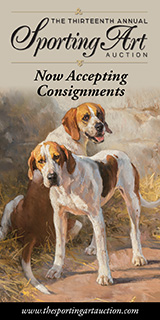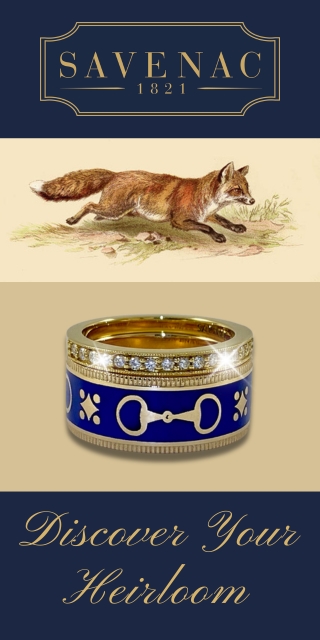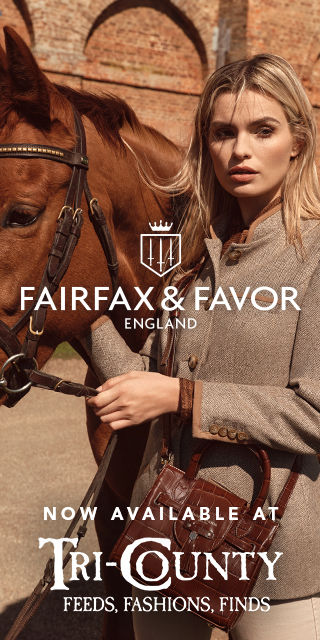Music
Brian Kiely Wins Fourth National Horn Blowing Championship
Brian Kiely bested a strong lineup of fourteen participants to win his fourth National Horn Blowing Championship. / Liz Callar photo
Brian Kiely broke his own record by winning his fourth National Horn Blowing Championship. Since the start of the competition in 1995, five men have won the title twice—Andrew Barclay, Steve Farrin, Ian Milne, Adrian Smith, and John Tabachka—but with his fourth championship Kiely continues to move the goal posts for the rest of the field. Kiely is the new huntsman at the Potomac Hunt (MD), and his victory was accompanied by the cheers of his supporters led by retiring Potomac huntsman Larry Pitts.
The 2015 National Horn Blowing Championship was held at Morven Park on May 23, 2015 over the Virginia Foxhound Show weekend. The large crowd on hand under the Saturday night dinner tent listened enthusiastically to the fifteen entries in a strong lineup of contestants.
After the first round in which all participants blew three calls on their horns, three individuals were asked to return for a blow-off: Brian Kiely, Adrian Smith, and John Tabachka. This was an all-star lineup with all three finalists holding multiple titles. Adrian Smith is huntsman for the Metamora Hunt (MI), and John Tabachka is huntsman for the Sewickley Hunt (PA).
John Peel
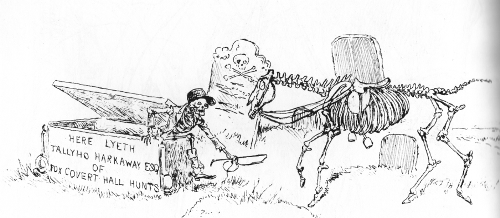 "Peel's view-halloo would waken the dead" / Illustration by Frank Paton from "The Songs of Foxhunting" by Alexander Mackay-Smith, 1974
"Peel's view-halloo would waken the dead" / Illustration by Frank Paton from "The Songs of Foxhunting" by Alexander Mackay-Smith, 1974
Like Tom Moody, John Peel owes his celebrity to a song, though I am bound to say that the Cumberland huntsman was far more worthy of such a distinction than the Shropshire whipper-in. And what canny Cumbrian is there, the wide world over, whose heart is not stirred within him by the dear, familiar words and tune of “D'ye ken John Peel,” even as the hearts of his Scottish neighbours across the Border are stirred by “Auld Lang Syne”!
It has been sung in strange places, that famous Cumberland hunting-song. Its chorus rang out hearty and homely from the huts at Balaclava and the dreary trenches before Sebastopol. It cheered the spirits of the band of beleaguered heroes in the Residency at Lucknow. The future King of England, our jolly sport-loving Prince, has been known many a time to join lustily in its spirit-stirring chorus. I myself have heard it sung on the boards of Drury Lane by some seventy comely lasses, whose shapely figures, clad in the hunting costume of the other sex, made one of the prettiest pictures I ever saw upon the stage, and gave an effect to the song which roused the audience to enthusiasm.
And yet, world-famous as the song is, I don't suppose that one person in a thousand knows who wrote it, or has the faintest notion who or what John Peel was beyond the fact that he was fond of hunting. Indeed, I have often heard the question asked, whether John Peel was a real person or merely a mythical hero. Well, that question is easily answered.
Free Offer: Foxhunting Songs, Country Style
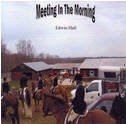 To mark the end of the hunting season Foxhunting Life is making another audio download available. Listen to “St. Hubert,” composed and performed by foxhunter Edwin Hall, and download the MP-3 audio file to your own computer with our compliments. We hope the music will keep you company in your vehicle and help keep your spirits up all summer.
To mark the end of the hunting season Foxhunting Life is making another audio download available. Listen to “St. Hubert,” composed and performed by foxhunter Edwin Hall, and download the MP-3 audio file to your own computer with our compliments. We hope the music will keep you company in your vehicle and help keep your spirits up all summer.
Ed Hall writes foxhunting songs with a purely America country flavor. So how did he come to write a song about St. Hubert, I wondered.
What? No Music?
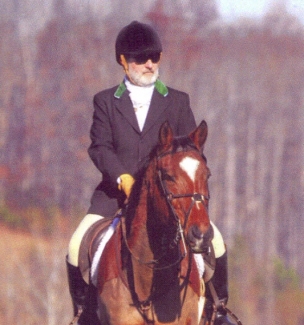
Edwin Hall
I wasn’t fortunate enough as a child to have horses or to be from a horsey family. However, we lived in rural Cleveland County, North Carolina, where a great many people had horses. Being the son of the local Baptist minister, I knew everyone in the community, and, between the ages of eight and thirteen, I was allowed to ride the horses of various church members. At the age of ten or so, I distinctly recall telling Carl DeBrew that I wanted to foxhunt when I grew up. I lived next door to Carl’s wonderful grandparents, who had a true family farm. They enriched my childhood more than any other people, including my own grandparents. Mr. Lee and Miss Carey DeBrew treated me like one of their own grandchildren, and I was allowed to ride their mule anytime I wanted (when it was not working!). Carl had two horses and was great about letting me ride them.
Songs of Foxhunting—Country Style
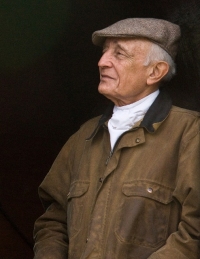
Karen Myers photo
Foxhunting songs with a purely American accent! Would you like to hear a sample? Download lyrics and the MP3 audio file and listen to Coyote Line by Edwin Hall—authentic Americana. If you have the lyrics in your hand and the music playing, you won’t be able to resist joining in on the chorus! Coyote Line is just one of ten songs in Ed Hall's CD, Meeting in the Morning, available now in our Bookstore.
Also available as promised is a new CD production of Alexander Mackay-Smith's The Songs of Foxhunting---a collection of twenty traditional songs, including John Peel; Here’s a Health to Every Sportsman; Drink Puppy, Drink; The Fox Went Out on a Chilly Night; and many more favorites. There’s too much joy in singing to let those old songs fade away. Not only have they been sung for hundreds of years, but most of them are based on lyrics from the hunting field put to even older English and Irish music. In short, they’re ancient. But let's go back to Ed Hall and his country music.
The Story of John Peel
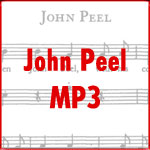
MP3 audio download is at the bottom of this article. Subscribe or log in to hear and download the music!
One night in 1829, John Woodcock Graves sat in his parlor with John Peel, a farmer, horse dealer, and foxhunter whose hounds were highly celebrated by the local sheep farmers. From the adjoining room, Graves overheard his son's granny singing an ancient Irish melody to the child. Graves took that old melody and wrote a new set of lyrics to honor his friend, John Peel.
"I sang it to poor Peel," Graves wrote, "who smiled through a stream of tears which fell down his manly cheeks, and I well remember saying to him in a joking style, ‘By Jove, Peel, you’ll be sung when we’re both run to earth!’"
Forty years later, William Metcalfe, Choirmaster of Carlisle Cathedral, heard the song at a banquet. He set down the tune in musical notation for the first time together with Graves’ words, composed a piano accompaniment, and had it performed locally. He went on to London with his choir and on May 22, 1869 performed the song at the dinner of the Cumberland Benevolent Society from whence it spread quickly over the English-speaking world, propelling John Peel into the most famous foxhunter of all time.


